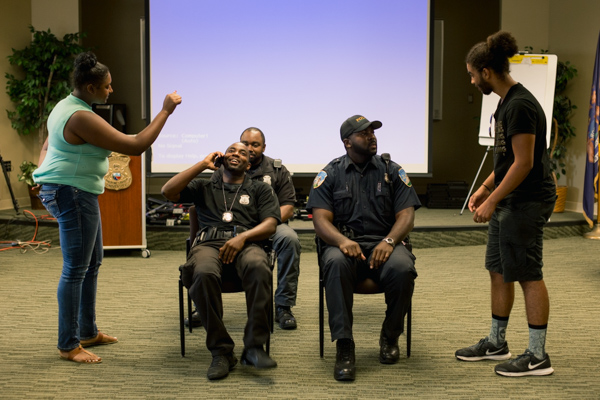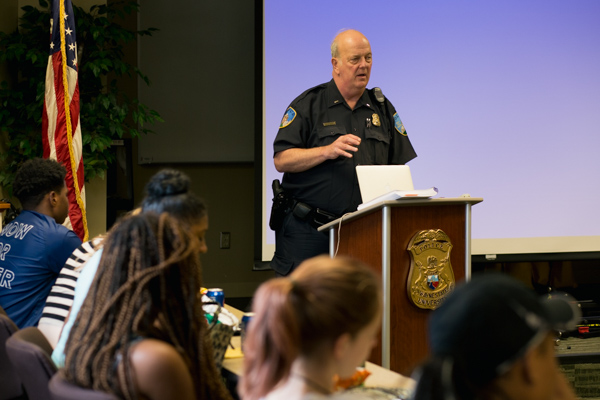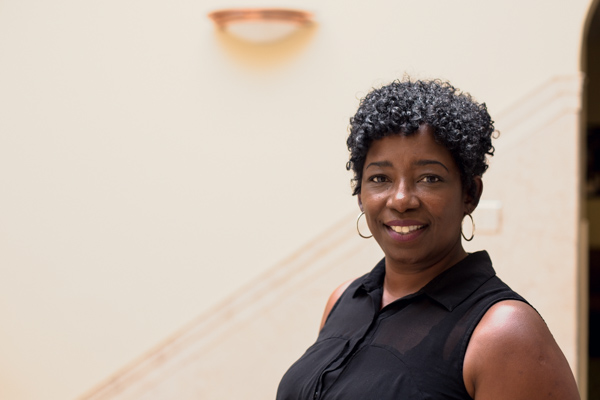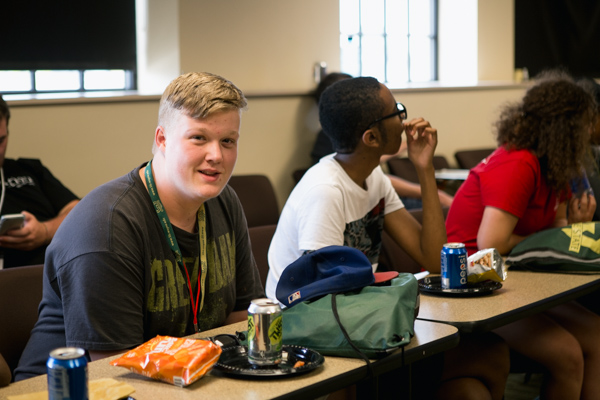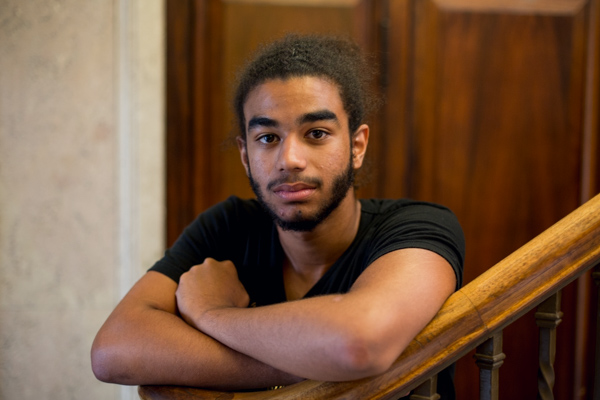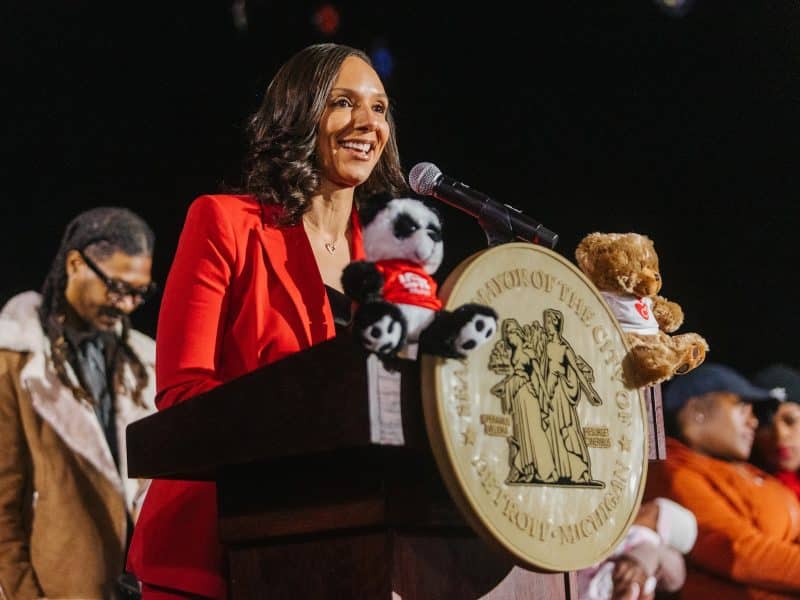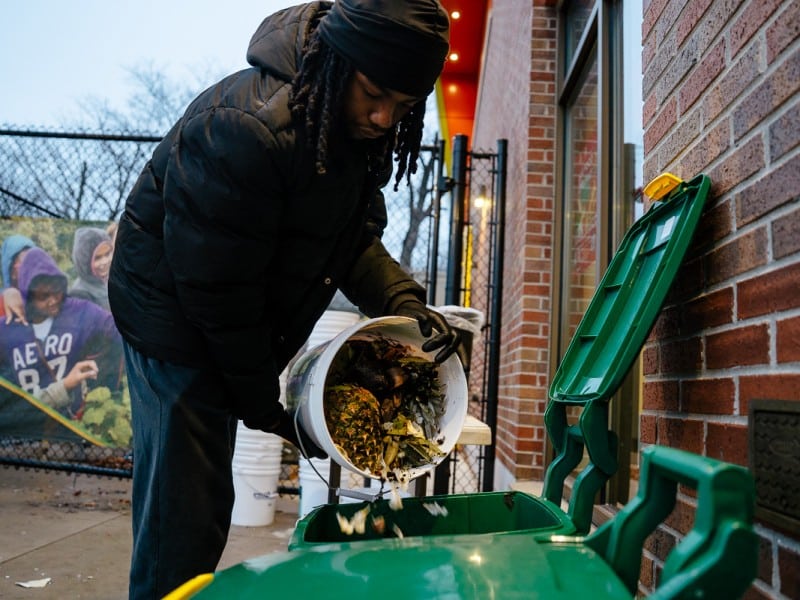Keeping the peace: Wayne State program continues longtime work of youth conflict resolution
As the 50th anniversary of the Detroit 1967 approaches, Wayne State University's Center for Peace and Conflict Studies continues to challenge tomorrow's young leaders to take action today.
When Wayne State University’s Center for Peace and Conflict Studies first opened its doors in 1965, American boots were fresh on the ground in the Vietnam War and Detroit was on the shortlist to host the next Olympic Games. Though Detroit was very different then, the Center’s mission remains the same: to help keep the peace at home by increasing the nation’s global perspective.
“We were among the first in the whole country to teach about war and peace, and we’re among the first ever to train conflict resolution in schools,” explains Dr. Frederic Pearson, just the third director of the Center for Peace in its more than 50 years. “Detroit ironically had one of its most liberal mayors, Jerome Cavanagh, at the time. He had, I guess, thought he was moving the city forward.”
The Center hoped to disarm the period’s increasing fears of international warfare by way of teaching about peace and conflict resolution. But a war was already brewing in its backyard, boiling over in the form of Detroit’s 1967 riot.
As the 50th anniversary of the riot—or rebellion, depending on who you ask—approaches next summer, the Center’s work is as vital as ever.
Originally founded as the Center for Teaching about War and Peace, the Center’s role quickly expanded from curriculum to community outreach in Detroit Public Schools, training staff to teach students in peer mediation.
“Further along the way, still interested in international conflicts of course, but further along the way, we began do more involvement in settling local disputes, particularly racial, ethnic issues,” says Pearson.
This included more work with civilians in schools and neighborhood outreach to negotiate cultural understanding between communities. Their work also included training police in conflict diversity. “Police are often the touch point when urban unrest occurs. Police are often in the middle between the politicians and the public,” he says.
Harnessing the future, now
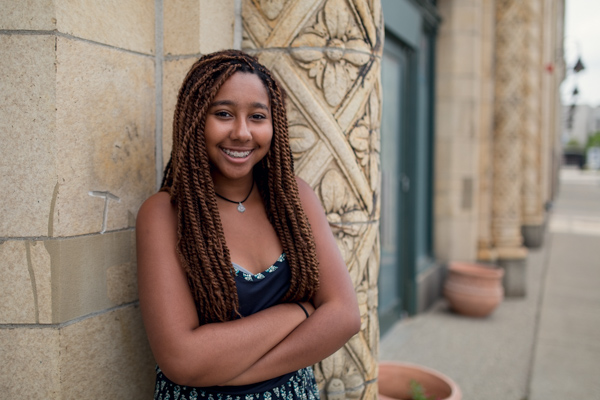
In the Center’s weeklong Ralph Bunche Summer Institute, students from high schools across metro Detroit learn that, “No matter how old you are, you can make a difference in the world.”
That motto helped Detroit Country Day incoming junior Tyler Claxton see new potential in her and Detroit’s future.
“I’ve only ever been to the part of Detroit where there are lights and everything is very new. Now that I’ve seen [the ways] you can help change the city, it gives me more hope,” she says.
Named after Nobel Prize-winning negotiator and Detroit-native, Dr. Ralph J. Bunche, the Institute hosts students (10 to 12 grade) from high schools across metro Detroit to spend a week in the city. Modeled after Bunche’s career as a peacemaker, students are briefed on a special curriculum of hot button social issues, and educated on the power of conflict resolution.
Students then give presentations on how they would help solve current issues in their community.
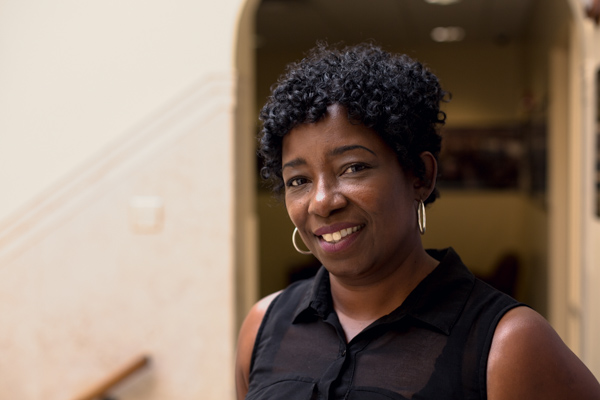
“We like to focus on overarching themes when it comes to diversity, social justice, race relations, civil rights, because they all can be the source of conflict,” says Barbara Lynette Jones, program director of the Ralph Bunche Institute and community dispute resolution specialist at the Center. “Some of our young people are not equipped with the basic skills that they need at this crucial age to be able to navigate life.”
Although students from both struggling and stable districts enter the program, navigating school can be difficult anywhere.
Dale French, 16, an incoming junior at The International Academy of Macomb, had to deal with bullying and low self-esteem in middle school. “It affected how I thought about myself,” he says. “If I knew what I know now, I think I would have handled things differently.”
French hopes to use what he’s learned from participating in the Bunche Institute to be an advocate for conflict resolution in his community.
“With everything that has been going on, I feel like it is really important to have something like this because it opens up dialogue and discussion,” he says.
Beyond all the topics the Center explores through its programs, Hamtramck High School student Scott Hallett, 16, says it’s been good to know that, regardless of age, your voice matters.
“We could make a change if we really put our mind to it, and I never thought of that before,” says Hallett. “I always thought that they would just shoot our ideas down because we are not adults yet. I now know that people will listen to us if what we’re saying is valid.”
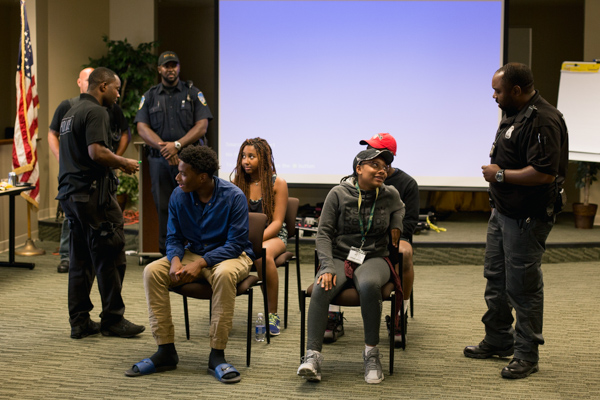
Up until the early 2000s, the Center had peer mediators in every Detroit Public School, funded by a grant to Wayne State through the U.S. Department of Education. But for the last three years, the Center has been completely dependent on outside funding. Jones says recent increases in school suspensions and other disciplinary issues could be curbed by programs like the Bunche Institute.
“We depend on our teachers so much to educate our students. They can’t focus on academics if they are always trying to resolve conflict with students,” says Jones.
Parks as places of peace
With the Center’s anticipation of the 1967 riots’ golden anniversary, the Bunche Institute has used the occasion as an historic framework to revisit the frustrations that fueled the riots and examine how they still affect the city today. Students visit places relevant to the riots, talk to police officers, and see revitalization efforts in historic neighborhoods.
Another location they visit, just as crucial to the itinerary, is parks.
The Bunche Institute’s most prominent sponsor and partner this year is the National Park Service, which is celebrating its centennial anniversary. The agency is making a concerted effort to engage urban cities in ways to utilize parks for grooming the next generation of stewards.
“We tell American history,” says David John Goldstein, an urban fellow of the National Park Service. Part of telling that history, he explains, is to ensure that people recognize the significance of the National Register of Historic Monuments and Places, managed by the Park Service.
Take Belle Isle. People arrested during the 1967 riot were held in jails on the island, a fact the Detroit Historical Museum has on record.
“The National Park Service is the only agency entrusted with all of our country’s cultural aspects,” says Goldstein. “I think we underestimate the role that stewardship can have in a city. It might make you a better park ranger. It might make you a better cop.”
Helping people feel more connected to the country through teaching about historic monuments will help and prevent conflict. It starts, says Goldstein, with engaging the next generation of leaders. “We have to change that in order to remain strong and relevant in a country that is changing.”
All photos by Nick Hagen.
